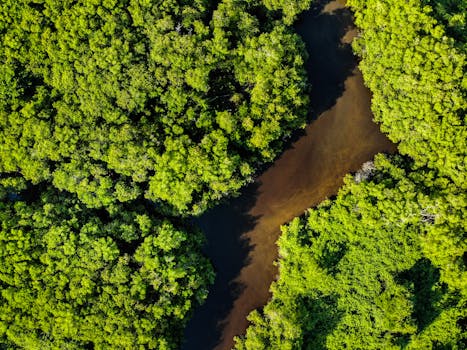
Introduction

The impact of climate change on global ecosystems is profound and far-reaching. As global temperatures rise, ecosystems are undergoing significant changes that threaten biodiversity and the balance of nature. In this article, we will explore the various ways in which climate change is affecting ecosystems around the world.
Effects on Biodiversity

One of the most alarming impacts of climate change is the threat it poses to biodiversity. Many species are unable to adapt quickly enough to the rapid changes in their environments, leading to a decline in populations and, in some cases, extinction. For instance, coral reefs, which are home to a diverse range of marine life, are experiencing bleaching due to rising ocean temperatures, resulting in the loss of habitat for countless species.
Shifts in Ecosystem Dynamics

Climate change is also causing shifts in ecosystem dynamics. Changes in temperature and precipitation patterns can alter the interactions between species, leading to changes in food webs and ecosystem functioning. For example, warmer temperatures can lead to earlier blooming of plants, which can disrupt the timing of migrations for pollinators and herbivores, ultimately impacting the entire food chain.
Impact on Forests and Land Use

Forests are critical for carbon sequestration and biodiversity; however, climate change poses a significant threat to these vital ecosystems. Increased temperatures and altered rainfall patterns can lead to forest dieback, making them more susceptible to pests and diseases. Additionally, land use changes such as deforestation and urbanization further exacerbate these issues, leading to habitat loss and fragmentation.
Changes in Aquatic Ecosystems

Water bodies are not immune to the effects of climate change. Alterations in temperature and precipitation can affect freshwater and marine ecosystems, disrupting fish populations and other aquatic life. Warmer waters can lead to decreased oxygen levels, making it difficult for species to survive. Furthermore, changes in salinity levels due to melting ice and increased rainfall can have dire consequences for aquatic biodiversity.
Conclusion

In conclusion, the impact of climate change on global ecosystems is a pressing issue that requires immediate attention. As we witness the decline in biodiversity and the alteration of natural habitats, it becomes imperative for us to take action to mitigate climate change and protect our planet’s ecosystems. Sustainable practices, conservation efforts, and a commitment to reducing greenhouse gas emissions are essential to preserving the delicate balance of our global ecosystems.



